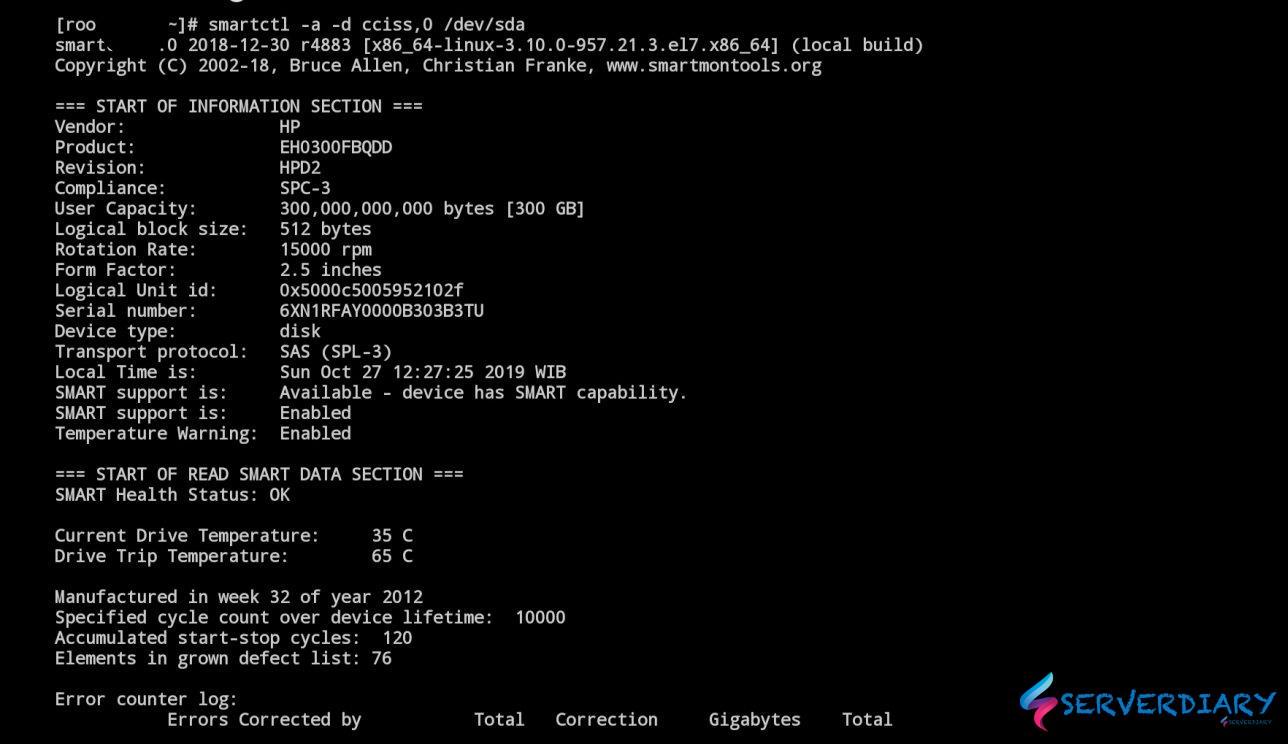

The open files included are disk files, network sockets, pipes, devices and processes. Lsof command used in many Linux/Unix like system that is used to display list of all the open files and the processes. Swap: 507 0 507 Displaying Open Files Statistics Lsof
#Linux disk health free
You can pass the “-m” option to display the output in megabytes: $ free -m total used free shared buffers cached $ free total used free shared buffers cached The free command provides information about unused and used memory and swap space on any computer running Linux or another Unix-like operating system. Run the vmstat -w command to show wide output. Run the vmstat -s command to show how many system events have taken place since the last time the system was booted. The following example shows the vmstat display of statistics that were gathered at 5 second intervals: $ vmstat 5 procs -memory-swap-io-system-cpu.

You can collect virtual memory statistics by using the vmstat command with a time interval in seconds. $ du ĭisplays the size of each directory that you specify, including each subdirectory beneath it.


To Display the size of one or more directories, subdirectories, and files use the du command. dev/mapper/ubuntutest-vg-root 19G 1.3G 17G 7% / $ df -h Filesystem Size Used Avail Use% Mounted on Use the df -h command to specify to output in a human-readable format. Use the df -kcommand to display disk space information in Kbytes like the following example: $ df -k Filesystem 1K-blocks Used Available Use% Mounted on $ df Filesystem 1K-blocks Used Available Use% Mounted on


 0 kommentar(er)
0 kommentar(er)
